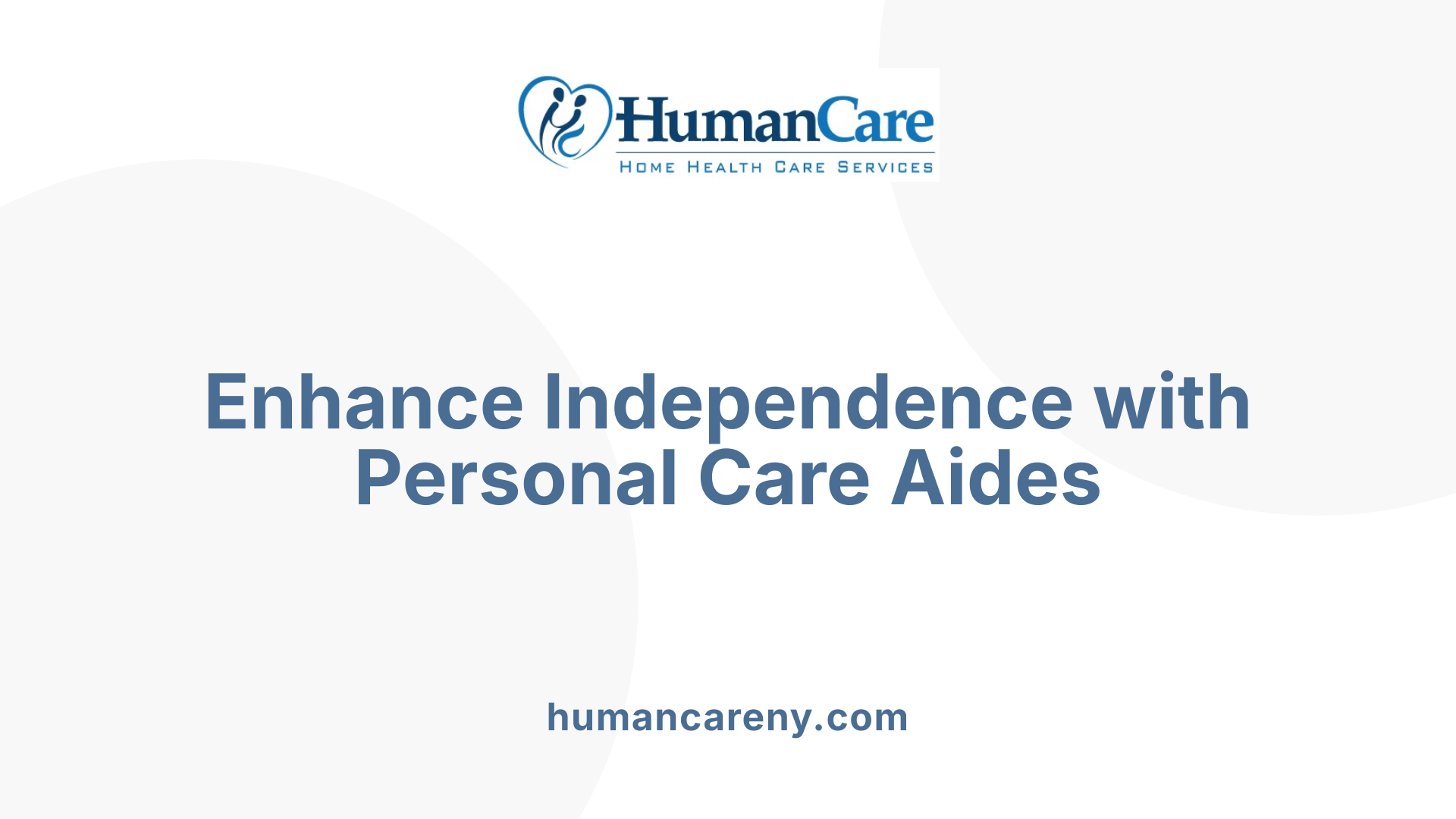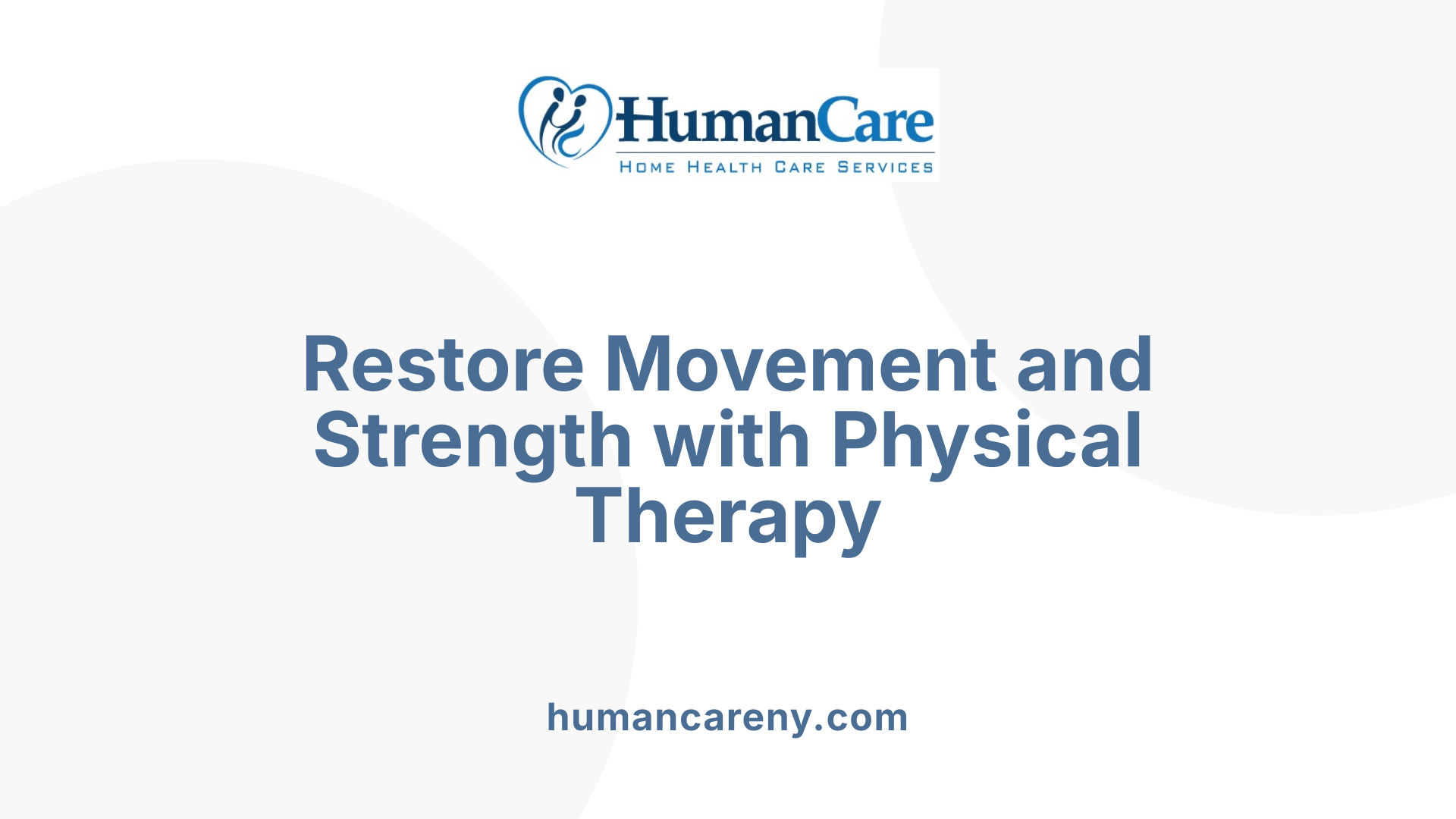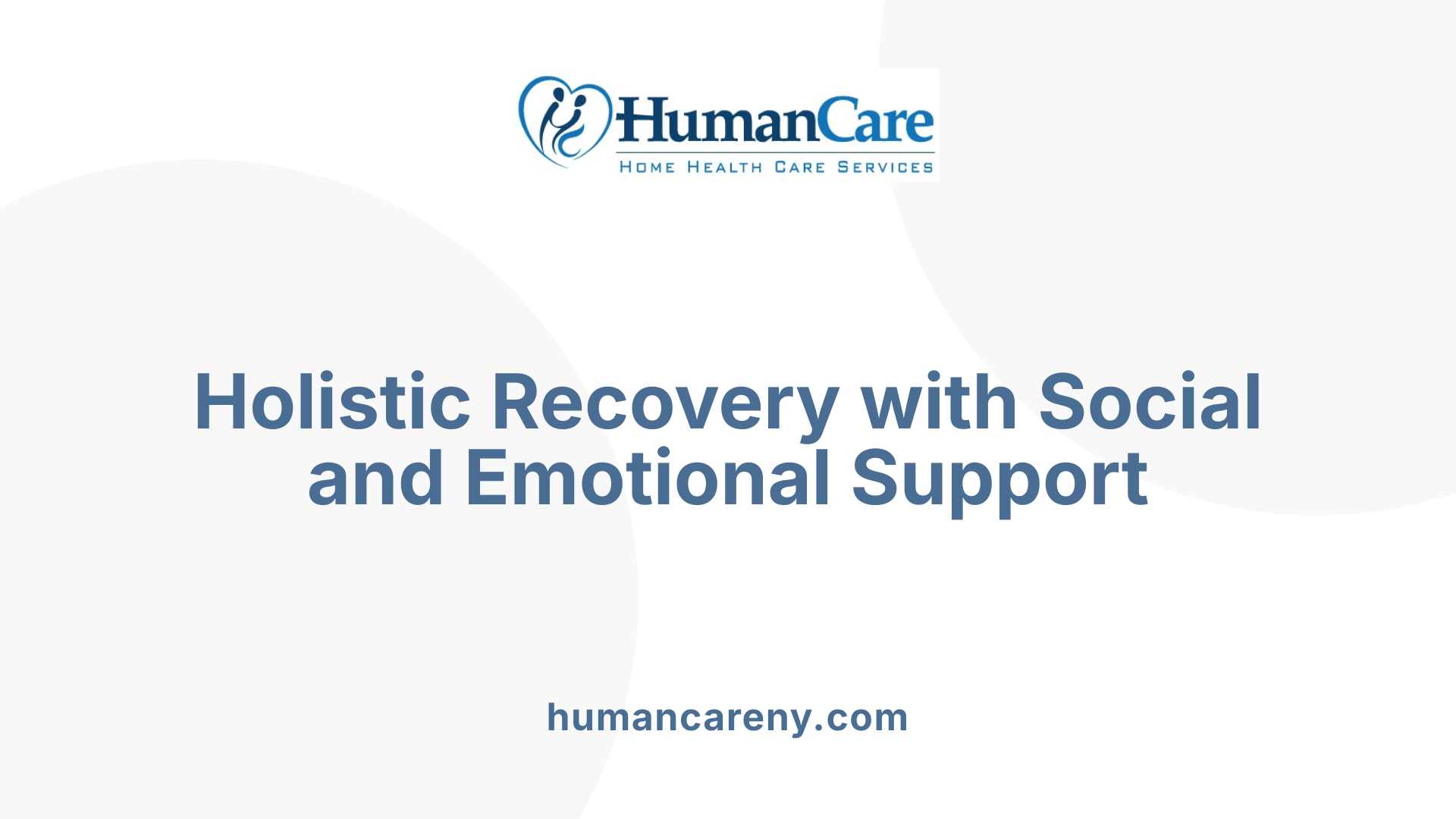Understanding the Importance of Homemaking Services in Elderly Post-Surgery Care
Post-surgery recovery for elderly individuals presents unique challenges that require not only medical attention but also comprehensive support for daily living activities. Homemaking services play a pivotal role in enabling seniors to regain their independence, maintain comfort, and ensure safety within the familiarity of their homes. This article explores the multifaceted ways homemaking services support elderly patients recovering from surgery, highlighting the integration of personal care, medical assistance, and emotional support that collectively facilitate effective recuperation.
Comprehensive In-Home Care: The Foundation for Effective Recovery
What is Comprehensive Home Health Care?
Comprehensive home health care refers to a wide range of medical and non-medical services provided directly in the patient's home. This type of care is designed to meet varied personal health needs without requiring the patient to visit a hospital or care facility.
What Services Are Included?
Home health care encompasses medical support like skilled nursing, physical therapy, and medical social work, as well as non-medical assistance such as personal care aides (PCA) and home health aides (HHA). These services work together to ensure that patients receive holistic care—covering everything from wound management and medication supervision to help with daily tasks like bathing and mobility.
How Is Home Health Care Tailored to Individuals?
The hallmark of comprehensive home care is customization. Care plans are developed based on individual health conditions, recovery needs, and personal preferences. Programs like the Consumer Directed Personal Assistance Program (CDPAP) even empower patients by allowing family members or friends to become paid caregivers, enhancing comfort and trust.
This tailored, blended approach ensures that elderly patients or those recovering from surgery receive appropriate medical attention while also maintaining comfort and independence at home. Such personalized care supports effective recovery and improves quality of life during convalescence.
Personal Care Aides: Supporting Daily Living Activities

What is the Role of Personal Care Aides (PCAs)?
Personal Care Aides (PCAs) offer essential support to individuals who need help with daily living activities, especially elderly people or patients recovering from surgery. Their role is to assist patients directly in their homes, promoting independence while ensuring safety and comfort.
How Do PCAs Assist With Bathing, Dressing, Grooming, Toileting, and Mobility?
PCAs help with personal hygiene tasks such as bathing and grooming, as well as dressing and toileting. They also support mobility, assisting patients to move safely around their home. This personalized assistance helps individuals maintain their routines and reduces the risk of accidents during recovery.
How Do PCAs Help Preserve Dignity and Comfort During Recovery?
By providing respectful, compassionate care tailored to individual needs, PCAs ensure patients feel comfortable and valued. Their support helps maintain the patient's dignity during vulnerable times, fostering a positive environment conducive to healing and well-being.
Home Health Aides: Bridging Medical and Homemaking Needs

Tasks performed by home health aides (HHAs)
Home health aides provide essential support that blends medical care and homemaking tasks. They assist patients with day-to-day needs, ensuring comfort and safety while aiding recovery.
Medication management
A critical role of HHAs is helping patients manage their medications properly. This includes reminding patients when to take medicine and assisting with organizing pills, which is especially important after surgery when medication routines can be complex.
Light housekeeping
HHAs also perform light housekeeping duties such as cleaning, laundry, and meal preparation. These tasks help maintain a hygienic environment and promote well-being, allowing patients to focus fully on their recovery.
Vital signs monitoring
Monitoring vital signs like blood pressure, temperature, and pulse rate is another key responsibility. This allows early detection of any potential complications during recovery, ensuring timely medical intervention if necessary.
Importance for patients recovering from surgery
For patients recovering from surgery, HHAs provide a supportive presence that enhances their safety and comfort at home. Their comprehensive assistance reduces the risk of hospital readmission by promoting adherence to medical instructions and encouraging proper self-care during healing.
Home health aide services play a vital role in the recovery journey, offering personalized, compassionate care that bridges medical needs and everyday living.
Skilled Nursing Care: Medical Expertise at Home

Role of registered nurses (RNs) in home care
Registered nurses play a crucial role in delivering skilled medical care directly in patients' homes. Their expertise is essential for individuals recovering from surgery, managing chronic illnesses, or requiring health supervision that goes beyond routine care.
Wound management
One of the specialized services provided by RNs is wound management. Nurses assess and treat wounds to prevent infections and promote healing, thereby reducing the need for hospital visits. They ensure that wound care protocols are followed accurately, which is vital for elderly patients or those with compromised health.
Chronic condition monitoring
Registered nurses also monitor chronic conditions such as diabetes, heart disease, and respiratory illnesses. Through regular assessments, medication review, and vital sign monitoring, they help maintain the patient's stability and identify early signs of complications.
Health education for elderly patients
Education is a vital part of nursing care. RNs provide health education tailored to elderly patients, helping them understand their conditions, medication regimens, and lifestyle modifications. This empowers patients and their families to participate actively in their health management, promoting better outcomes and increased independence.
Rehabilitative Therapies: Physical Therapy to Restore Mobility

How does physical therapy benefit recovery at home?
Physical therapy plays a crucial role in enhancing recovery for patients recuperating at home, especially after surgery or illness. By focusing on improving strength, mobility, and coordination, physical therapists assist individuals in regaining their independence and reducing pain. This support helps prevent complications such as muscle weakness or stiffness and encourages a faster return to everyday activities.
In what ways does physical therapy improve mobility, strength, and coordination?
Through targeted exercises, physical therapists work to enhance joint flexibility, muscle strength, and balance. These improved physical functions not only restore movement but also lower the risk of falls, which is particularly important for elderly patients. Coordination training further refines motor skills essential for safe daily living.
What does a personalized exercise program include?
Each patient receives a customized exercise routine designed to meet their specific needs and medical conditions. These programs may incorporate stretching, strengthening, and balance activities that progress in difficulty over time. Regular reassessment ensures exercises remain effective and are adjusted based on recovery progress.
How does physical therapy support musculoskeletal recovery?
For individuals recovering from strokes, fractures, or musculoskeletal issues, physical therapy aids in rebuilding muscle function and reducing pain. Therapists provide education on body mechanics and safe movement techniques to facilitate healing and prevent re-injury. This comprehensive approach enhances quality of life and promotes long-term health.
Emotional and Social Support Through Medical Social Work

Counseling services for emotional wellbeing
Medical social workers play a vital role in providing counseling to patients receiving home health care, especially elderly individuals recovering from surgery or managing chronic conditions. Their support focuses on emotional wellbeing, helping patients cope with feelings of anxiety, depression, or isolation that often arise during recovery at home.
Support with social and mental health challenges
Beyond counseling, medical social workers assist with various social and mental health challenges. This includes connecting patients with support groups and mental health resources to address issues such as loneliness, stress, or cognitive difficulties. Their involvement ensures patients are not only physically cared for but also emotionally supported throughout their recovery journey.
Access to financial aid and community resources
Medical social workers also help patients navigate financial challenges by providing access to financial aid programs, assistance with bill payments, and guidance on legal matters like power of attorney. They link patients to community resources including transportation services, meal delivery programs, and volunteer support, which collectively enhance the patient’s quality of life and facilitate smoother recovery in the home setting.
Family-Centered Care with the CDPAP Program
What is the Consumer Directed Personal Assistance Program (CDPAP)?
The Consumer Directed Personal Assistance Program, or CDPAP, offers a unique approach to home health care by enabling patients to choose their caregivers. This program allows friends and family members to become paid caregivers, provided they receive the necessary training. CDPAP empowers patients by putting them in charge of who assists with their personal care at home.
How Does CDPAP Allow Friends or Family to Serve as Paid Caregivers?
Unlike traditional caregiving services relying solely on professional aides, CDPAP supports a family-centered model. Under this program, a loved one—such as a spouse, adult child, or close friend—can deliver personal care services, including help with bathing, dressing, and mobility. These caregivers are compensated for their work, promoting both financial support for caregivers and comfort for patients.
What Are the Benefits of Personalized, Familiar Support in Recovery?
Having familiar caregivers at home eases emotional stress for patients recovering from surgery or managing chronic conditions. This personal connection fosters trust and comfort, which can enhance recovery outcomes. Additionally, family members often have deep insight into the patient's preferences and routines, allowing truly customized care plans. The CDPAP's model encourages independence, dignity, and continuous support in the comfort of home, all essential for effective rehabilitation and health management.
Advantages of Home Health Care Over Institutional Settings
How does home health care help avoid unnecessary hospital visits?
Home health care allows patients to receive medical attention directly in their homes, reducing the need for frequent hospital or clinic visits. Skilled nurses and therapists can monitor health conditions closely, detect complications early, and provide timely interventions.
In what ways does home health care support patient independence?
By delivering care in the familiar environment of the patient’s home, home health care fosters a sense of comfort and autonomy. Assistance with daily tasks, physical therapy to enhance mobility, and personalized care plans enable individuals to maintain their routines and dignity.
What are the benefits of personalized care plans in home health care?
Care plans tailored to each patient's unique needs ensure that both medical and non-medical support address specific health challenges and preferences. This personal approach promotes more effective recovery and management of chronic conditions compared to the standardized routines in institutional settings.
How is technology utilized in home health care for better monitoring?
Advanced technology, such as emergency medical alert systems and remote monitoring devices, enables continuous observation of vital signs and timely response to emergencies. This enhances patient safety and allows healthcare providers to adjust treatments based on real-time data.
What continuous and emergency support does home health care provide?
Home health services often include access to 24/7 emergency support and coordinated communication among healthcare professionals. This continuity ensures patients receive consistent care and swift assistance during urgent medical situations, all within the comfort of their home.
Navigating Insurance and Coverage for Home Health Services
What are the Medicare coverage criteria for home health services?
Medicare provides coverage for home health services if the patient meets specific criteria. The patient must be homebound and require part-time or intermittent skilled services. Homebound status means the individual has difficulty leaving home without assistance due to their medical condition but can leave occasionally for medical treatments or short, infrequent trips without losing eligibility.
What skilled nursing and therapy service requirements must be met?
Medicare covers several skilled services including nursing care—such as wound management, injections, and monitoring serious illnesses—and therapies like physical, occupational, and speech therapy. Additionally, medical social services and home health aide care are covered. However, home health aide services are only payable when provided alongside skilled nursing or therapy services.
How does the face-to-face assessment process work?
Before home health services can begin, a face-to-face assessment by a healthcare provider is mandatory. This evaluation ensures the patient's need for skilled services and confirms that Medicare’s eligibility requirements are met. It serves as a foundation for understanding the personalized care plan.
What are the limitations on coverage hours and services?
Medicare typically covers home health care up to 8 hours per day and a maximum of 28 hours per week. Notably, it does not cover 24-hour care, meal delivery, or custodial care unrelated to medical needs. The home health provider is required to inform patients about Medicare payment policies and provide notices such as the 'Advance Beneficiary Notice' if certain services are not covered.
This guidance helps patients and families understand the scope and requirements of Medicare-covered home health care, ensuring they receive appropriate skilled support during recovery without unexpected costs.
Supplementary Services Enhancing Recovery at Home
Meal Delivery Programs and Nutritional Support
Maintaining proper nutrition is vital for recovery, especially for elderly individuals with limited mobility. Meal delivery programs like Meals on Wheels provide nutritious meals directly to the patient’s home, ensuring they receive balanced diets without the stress of cooking. This service supports healing and overall well-being during recovery periods.
Transportation to Medical Appointments
For many elderly or post-surgery patients who can no longer drive, transportation assistance is essential. Specialized transportation services help patients attend necessary medical appointments and therapy sessions, promoting consistent care adherence and aiding a smoother recovery process.
Emergency Medical Alert Systems
Safety plays a crucial role during home recovery. Emergency medical alert systems offer peace of mind by providing immediate notification to emergency services in case a person falls, experiences a medical emergency, or becomes lost. These systems help enhance security and prompt response when needed most.
Volunteer and Senior Companion Services
Social isolation can negatively affect recovery outcomes. Volunteer and senior companion services offer valuable social support and companionship, often at no cost. They help prevent emotional distress and promote mental health by offering regular interaction and assistance during daily routines.
Together, these supplementary services create a supportive home environment that addresses practical, nutritional, emotional, and safety needs, facilitating a comprehensive recovery process tailored to each patient’s unique requirements.
Professional Management and Personalized Care Planning
Role of Geriatric Care Managers
Geriatric care managers play a crucial role in coordinating comprehensive home health care for elderly patients, especially those recovering from surgery. They assess the patient's needs, develop personalized care plans, and oversee the delivery of medical and supportive services. Their expertise ensures that care is tailored to the individual's health status and lifestyle, promoting better recovery outcomes.
Mental Health Professional Involvement
Mental health professionals provide essential counseling and emotional support to patients and their families during recovery. They address issues such as anxiety, depression, and social isolation, which commonly affect elderly individuals post-surgery. By integrating mental health services into the home care plan, patients receive holistic care that supports both physical and emotional well-being.
Coordination of Care Plans
Effective coordination among healthcare providers, including nurses, therapists, social workers, and family caregivers, is vital for successful home-based recovery. Geriatric care managers facilitate communication and collaboration to ensure services like wound management, therapy, medication monitoring, and daily assistance work seamlessly together. This integrated approach minimizes complications and supports steady progress.
Financial and Legal Support During Recovery
Managing finances and legal matters can be challenging during recovery. Home health care services often include assistance with bill payments, navigating insurance coverage, and understanding legal authorizations like power of attorney. Such support helps reduce stress for patients and families, allowing them to focus on healing while ensuring their financial and legal affairs are managed properly.
Ensuring Successful Elderly Recovery Through Integrated Homemaking Services
The journey of recovery for elderly individuals after surgery extends beyond clinical treatment to encompass a broad spectrum of supportive services that homemaking care uniquely offers. By integrating personal assistance, skilled medical care, rehabilitative therapies, and emotional support within the patient’s home, homemaking services foster safer, more comfortable, and effective recovery environments. Leveraging family involvement, technological advancements, and comprehensive planning further enhances these outcomes. Understanding and accessing the right blend of services, supported by appropriate insurance coverage and professional management, can substantially improve the quality of life for seniors during their critical recovery phases.



